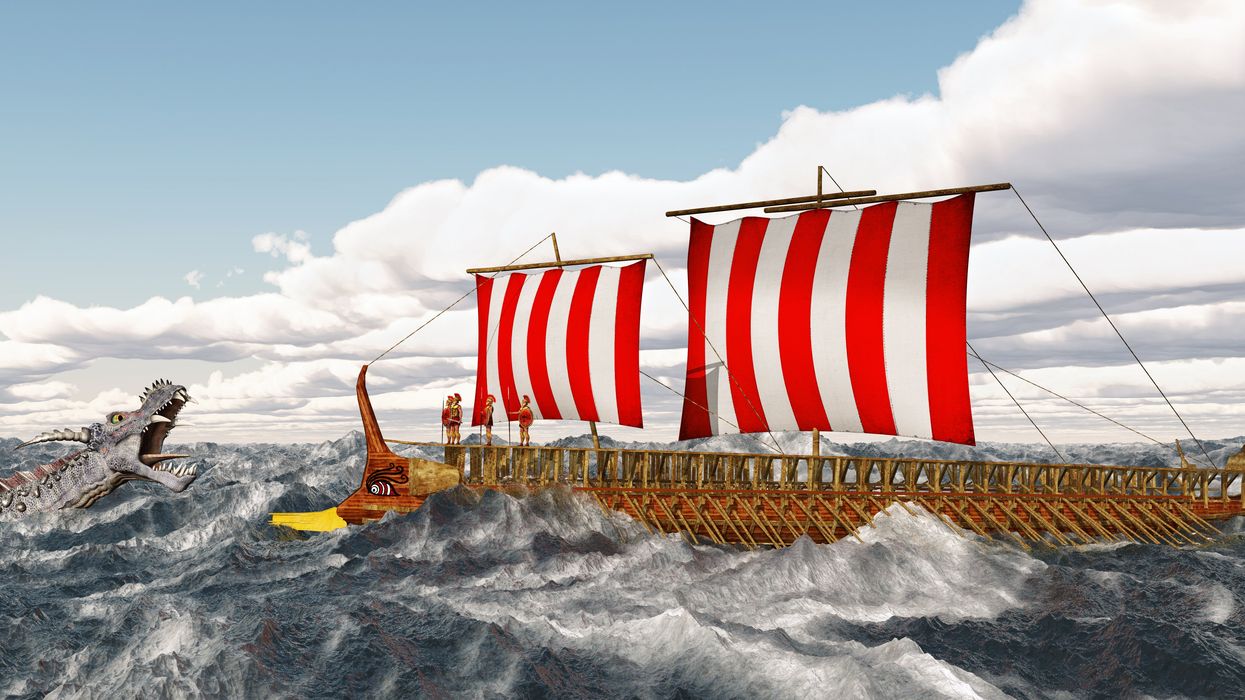Radwell is the author of “ American Schism: How the Two Enlightenments Hold the Secret to Healing Our Nation ” and serves on the Business Council at Business for America. This is the first entry in a 10-part series on the American schism.
What were our Founders’ greatest fears when they shaped the American experiment in the 18th century? The same qualms they wrote about extensively before the Revolutionary War came to a head in the years between the Spirit of ’76 and the Constitutional Convention.
By 1787, with the war over, the mission at the convention was straightforward: Operationalize the new country’s credo, which had been issued 11 years earlier in the Declaration of Independence. Clearly the Articles of Confederation were failing to address the mounting problems. With a war debt sky high and the lack of a coherent foreign policy or ability to marshal an army, the pressing difficulties on the ground threatened the very endurance of the new nation.
While each of our founders had a unique perspective, there was an overriding fear they shared as they crafted this blueprint: democracy. They felt that a democratic model requiring citizens to elect representatives to advocate on their behalf was a model that carried great risk and was prone to misuse by rabble-rousing troublemakers. They were concerned that oratorically gifted scoundrels could disguise selfish or malicious motives in a veil of populism. They feared the very mob rule that only a few years later would ensue during America’s sister revolution, when the Reign of Terror took hold in France.
And because they feared the mob, many eschewed democracy. Their ideal government design was a Montesquieuian balance of powers, which allowed our Founders to forge the great compromise delineated in the Constitution. The resulting motley stew of social contract fragments could hardly be called elegant. (As an aside, the Founders knew this blueprint could never be set in stone, that it would necessitate continual adaptation by every generation. So much for originalism.)
The mixed model was clearly not a pure democracy. It featured a strong executive, a king but in name only; an aristocratic ruling class, appointed by the individual states and wielding tremendous power; and one structural component embodying representative democracy to share the legislative responsibility.
So how well has the blueprint served us over the last 230 years?
Talk about a glass half full. Nonetheless, despite a multifaceted succession of challenges triggered by inconceivable transformations of our world, I maintain that we are still the longest and greatest experiment in self-government in recorded history. For those on the left and the right who seem all too ready to throw it away, albeit for quite different reasons, and to all those on the both the left and the right who imagine our democracy is imperfect but working and thus requires no change – my message to you is simple: Get real.
A huge swath of eligible voters fails to believe that Donald Trump poses a serious threat not only to these governing norms and institutions, but to the model that has served us so well. Despite a string of indictments, according to recent polls, there is a very good chance that Trump will get another term in the White House. Moreover, almost all Americans are extremely unhappy with this choice. How do we explain the pickle we are in?
In this 10-part series I will explore 10 different perspectives on the American schism in 2024. (Think of this as a top 10 list – one unavoidably biased). No individual installment of these theses can be proven to be the dominant cause of our predicament. Yet at the same time I believe each one has played a significant part in molding this conundrum. One caveat: I suggest no particular order or ranking since the effects of each cumulate or compound on top of others.
Here is the first: This matchup between Trump and President Joe Biden is perceived as a choice between Scylla and Charybdis. In “The Odyssey,” Odysseus is forced to decide which of the mythological monsters he will face on his voyage home from the Trojan War – both promising a disastrous outcome. However, any clear-eyed examination of the 2024 data reveals the degree to which this is a false equivalency.
Even if one makes a fact-based argument that the Biden presidency has not been successful in its objectives, one cannot equate the risks that each candidate presents to our republic. Trump has virtually promised to continue his assault on our democratic institutions, and to sow hatred and division. In these dimensions, Biden is his polar opposite.
But this juxtaposition is not reflected in the political calculus so far. Too few on the center right believe that Trump poses the unprecedented threat as understood by a small cadre of conservatives like former Rep. Liz Cheney (R-Wyo.). On the contrary, most do his bidding. Thus even though most Democrats and some independents worry about Biden’s age and wish he would not run again, they have a greater dread of Trump 2.0. On the other hand, the federal and state leadership on the right continues to fashion the would-be emperor as donning beautiful clothes.
This reflects on the ultimate relationship between reality and perception. In today’s America, the former only matters to the degree it affects the later.
Stay tuned for the next nine in the list.




















Trump & Hegseth gave Mark Kelly a huge 2028 gift